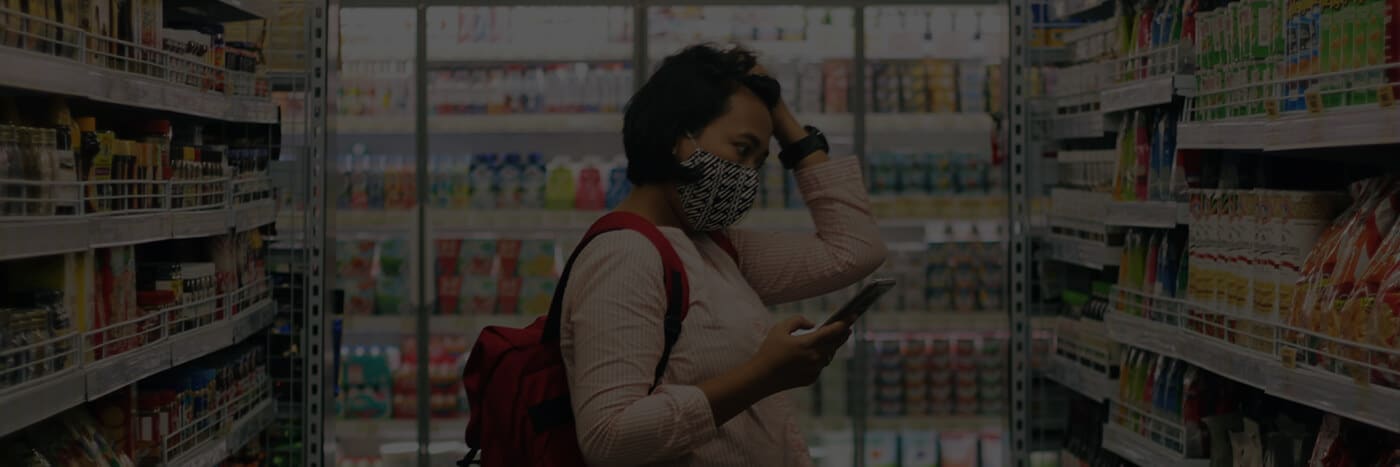UAE (United Arab Emirates) is undisputedly one of the world’s ultimate shopping destinations. People from all over the world travel to enjoy a unique global shopping experience. Dubai’s shopping festivals are quite popular and are events people align their holiday tours with. The emirate, experiencing hyper-growth in tourism and retail sales, was set to become the world’s shopping capital. With the onset of the COVID-19 pandemic, life as we know it halted, and this completely rewrote the retail rulebook of the country.
The pandemic brought two main lifestyle changes: It required people to stay at home and practice social distancing. As a result, many shopping festivals were either canceled or postponed. In contrast, the malls either went under a lockdown or started following strict COVID-19 SOPs, which transformed the shopping experience everyone could connect with. Between lockdowns and fear of a contagious disease, online orders became more frequent. For those who continued to shop in-store, sanitation and social distancing became paramount.
Today, safety and health concerns have become major purchase drivers, as they affect how customers may choose to interact with a retailer.

Grocery sector: Retail’s most promising growth segment despite COVID-19
Dubai Chamber of Commerce and Industry predicts the pent-up consumer demand in H2 of 2021, Dubai Expo, and COVID-19 vaccination efforts by the government may spur an eyebrow-raising 13% growth in retail sales. This forecast was further reinforced by a report from Euromonitor predicting UAE retail sales to reach $70.5 billion by 2025. It further highlighted that store-based retailing may grow at a CAGR of 5.7% and online retailing growth to surpass this number by a CAGR of 14.8%.
UAE retail sales are forecasted to reach AED 290.7 billion by 2021, and grocery is the largest category group here with 47.2% of retail sales in the country.
Positive macroeconomic factors in the UAE result in consistent growth in retail, where sales are forecasted to reach AED 290.7 billion by 2021. The grocery segment takes the largest share within the retail group, with 47.2% of retail sales in the country. These statistics were featured in the Food & Grocery Retailing in the UAE, Market Shares, Summary and Forecasts to 2021 report.
Customer expectations are evolving, and so are the supply chain and inventory management processes. With projected growth in the retail and grocery segment coupled with changing customer needs, grocery retailers face increasing challenges, such as last-mile delivery returns, lack of visibility, and customer dissatisfaction. To tackle these challenges, retail stores need dedicated technological systems that is well-integrate to handle the entire fulfillment process, from transportation and storage to keeping up with new customer expectations.
UAE grocery retailers are quickly transforming their processes into a digital ecosystem that offers visibility to customers and operations teams. This helps them attract and maintain customer loyalty while scaling growth. These businesses are now considering new revenue and customer retention models such as memberships, subscriptions, or loyalty programs. On the technology and user experience front, they are focusing on creating digital omnichannel shopping experiences that are optimized for a multi-channel sales approach for their customers.

COVID-19 induced an e-commerce boom in the UAE’s grocery retail industry
According to a report released by the Dubai Chamber, UAE currently leads the MENA (Middle East and North Africa) region in household spending on e-commerce by a staggering $2,554 per household.
A comprehensive study by Coresight reveals that before the COVID-19 pandemic, grocery shoppers in the UAE did not prefer to buy online. The reason behind this was residents’ busy lifestyles, which meant that grocery shopping was a family event featuring pleasant visual shopping experiences and numerous dining options.
“The online grocery market
has a sizable number of
shoppers, but they generally
buy online infrequently.”
Coresight Research CEO Deborah Weinswig
According to a report, grocery shopping accounted for only 5% of UAE’s e-commerce sales before the pandemic, but this figure rose to a massive 24% during the lockdown. People were staying indoors, and they had no choice but to buy grocery items online. The adoption of e-commerce increased massively as users started to experience the benefits of online grocery shopping over the traditional offline approach.
With people adopting online shopping for groceries, many retail stores and businesses are considering solutions such as Dynamics 365 to help them digitalize operations and offer online shopping experiences. Hard-discounters, supermarkets, and hypermarkets in the UAE have so far appeared as the dominant channel for grocery sales, accounting for 41.6% of said sector sales. These retail markets are also rapidly adopting e-commerce to cater to the increasing number of consumers who continue to shop online.














